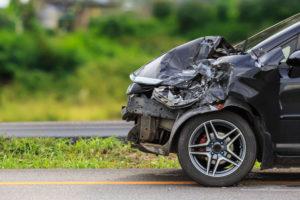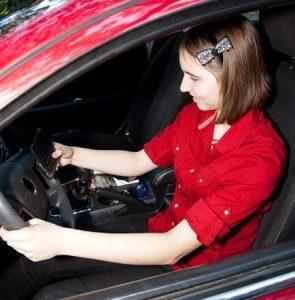
In most states, proving who was at fault in a collision is crucial to recovering compensation and ensuring justice. As such, knowing how fault is determined in a car accident may make it easier to prove your case and hold the negligent driver legally responsible.
While it may be possible to navigate this process, prove fault, and recover compensation on your own, having an attorney on your side to handle each step for you could significantly reduce your stress and make it much more manageable.
Investigating the Crash to Determine the Cause
When fault-based auto collision laws are at play, the first step in recovering compensation is investigating what happened. In most crashes, at least one driver acted carelessly or recklessly and caused the collision by violating a traffic law. Examples of such behavior include:
- Running a stop sign or red light
- Failing to maintain their lane
- Changing lanes without looking
- Failing to yield the right of way when turning
- Running into the back of stopped traffic
- Speeding
- Drunk driving
- Distracted driving
When a driver commits one of these acts and causes a crash, it constitutes negligence.
Proving Another Party’s Negligence and Liability
There are four things an accident victim must show to confirm negligence:
- The other party’s duty toward the victim
- How the other party breached that duty
- The connection between the other party’s actions and the accident
- Proof of the victim’s injuries
For example, imagine a driver ran a red light. Under state law, they had a duty to stop at the traffic signal but failed to do so, directly leading to the crash. If the victim suffered financial, physical, and emotional harm, they can use these points to prove their right to damages.
Key Evidence When Determining Fault in a Car Accident Case
The evidence available to prove a car accident case varies but may include:
- The report law enforcement filed
- Witness statements
- Video or photos of the crash
- A survey of the scene
- Accident reconstruction
- Damage to each vehicle
- Expert testimony
- Relevant medical records
- Documentation of bills, receipts, and proof of other expenses and losses
For a free legal consultation, call (800) 537-8185
The Insurer Will Conduct Its Own Investigation
Once you or your attorney gather evidence and have strong support for your claim, you will prepare and send a demand letter to the insurance company that represents the at-fault driver. This company will then begin investigating the collision.
They will want to see many of the same things you did and gather their own evidence to determine:
- If their policyholder was at fault
- If you share any of the fault
- How much they believe the case may be worth
The insurer may also want to get a recorded statement from you during this process. Generally, crash victims should refuse this request and allow an attorney to speak on their behalf to protect the case.
Vicarious Liability Laws Could Affect Fault
In most cases, the driver who caused the accident is liable. However, other people or corporations could share in the fault, especially in commercial vehicle accidents.
Most states have either statutes or case law that supports respondeat superior. This legal doctrine makes the employer responsible for an employee’s negligent actions – such as a truck driver – when they cause an accident and injuries. These laws include:
Alabama
Alabama allows victims to hold companies responsible for “the acts of a servant or agent done within the scope of his employment” under the 1929 Supreme Court of Alabama decision in St. Louis-San Francisco Ry. Co. v. Robbins.
Arkansas
The Arkansas Supreme Court ruled that “the law of respondeat superior is well-settled” in the May 1962 case of Davis v. Kukar.
Louisiana
In Louisiana, La. Civ. Code Art. 2320 allows crash victims to pursue a case against a commercial driver and their employer. However, there must be evidence that the driver was working within the scope of their job at the time of the collision.
Mississippi
Under Miss. Code § 75-89-15, collision victims can hold the driver’s employer legally responsible for a crash under some circumstances.
Click to contact our personal injury lawyers today
How an Attorney Can Help You Determine Fault in a Crash
When our personal injury law firm takes on an auto accident, our attorneys handle all aspects of the claim for each client, including:
- Investigating
- Gathering evidence
- Determining fault
- Identifying the liable party or parties
Having someone on your side who knows how to prove what happened and who is legally responsible ensures you can focus on healing from your injuries and getting on with your life. Our attorneys also know how to value losses, estimate future expenses and care needs, and price your intangible pain and suffering damages – we have networks of experts and experience handling similar cases.
There are deadlines for suing in these cases, so you need to act quickly to protect your right to pursue damages.
Get a Free Consultation from Morris Bart, LLC Today
You can speak with an attorney from the Morris Bart law firm today at no cost to you or your family. Our car accident attorneys provide complimentary consultations so you can learn more about your case. In addition, we are a contingency fee law firm with no upfront costs to victims.
We serve Alabama, Arkansas, Louisiana, and Mississippi. Call (800) 537-8185 for your case review today.
Questions?Call (800) 537-8185
to find a Morris Bart office near you.





